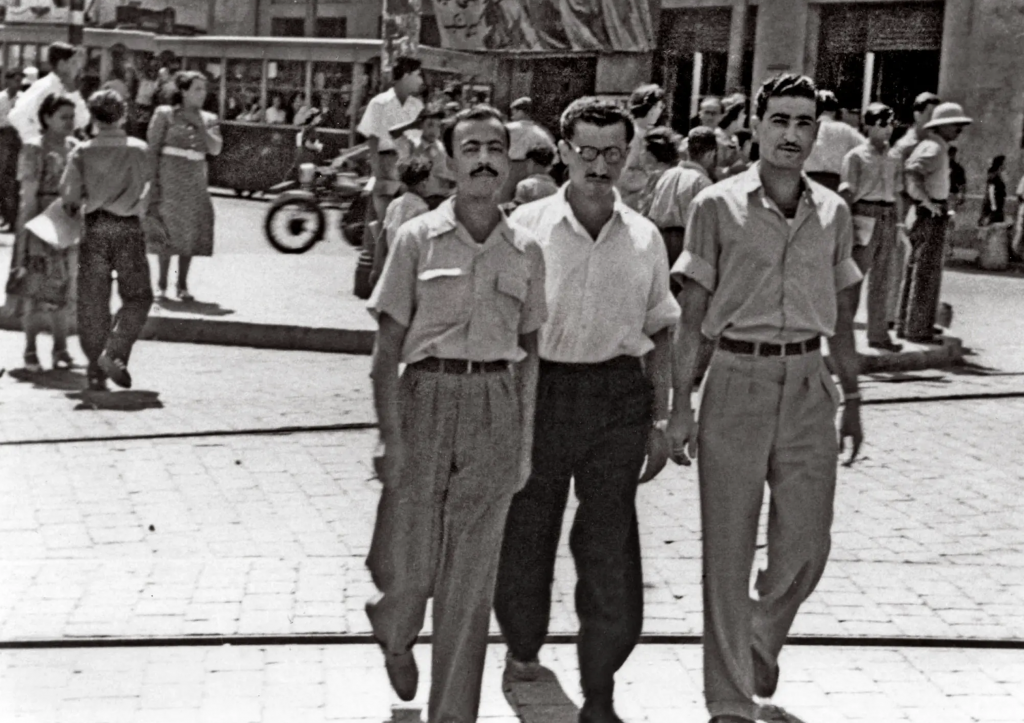July thirteenth. In Gaza’s Al-Mawasi coastal ‘safe zone’, which was designated as such to serve as a refuge for civilians, a beggar wanders around in front of a building seeking alms from passers-by. In a corner, a young man sits in front of a box containing a few pieces of fruit, waiting to sell his wares.
A car stops, three men get out and head into the building. Nobody pays attention to them or to the building. Still, the beggar wanders off right away and the vendor also leaves, having first gathered up his fruit in mock frustration. A little later, fighter jets are heard approaching and the building is blown sky high. Eight bombs weighing almost a ton in total obliterate the structure, leaving just a deep crater where it once stood. A little later, Israel announces that the infamous military leader of Hamas, Mohammed Deif, the man who planned the October 7 atrocities and was considered an expert at disguise, was eliminated in the strike. This time, it was the turn of other people in disguise to win the game: the beggar, the fruit seller and others whose roles the Israelis may never allow to leak out.

From the operation in Jenin this January. Agents disguised as doctors, nurses and patients neutralized three Hamas and Islamic Jihad cadres who had been hospitalized following an attack.
Since 1947
The Mista‘arvim, as they are called, have been a singular espionage unit since 1947. In fact, they may be unique worldwide. Their name means “those who want to pass as Arabs.” And their operations, which can be theatrical like the one in Al-Mawasi or spectacular, like the one in Jenin’s Ibn Sina hospital in January, when twelve of them disguised as doctors, nurses and patients executed three Hamas and Islamic Jihad cadres in the space of 10 minutes (the operation was captured on the hospital’s security cameras and subsequently made the rounds on social media), are always carefully planned. They pulled off an equally impressive operation in July, which led to the Army freeing four hostages in Gaza.
They can pull off demanding missions with such finesse thanks to the skills the unit has developed and perfected over the space of 77 years. Since November 1947, in fact, when the first Jews—all of them from Arab countries, which had begun to deport before Israel was even founded—were recruited by the Jewish resistance. Actually, it was the British who came up with the idea in 1943, and planned the first missions of an earlier incarnation of the unit, to gather intelligence from the Arabs about German operations in World War II.

Three Mista‘arvim on a mission in Beirut in 1949 (Palmach Museum, Tel Aviv)
Today, decades later, the Mista‘arvim—who, it should be noted, are distributed among various branches of the Army, Police and intelligence services (Mossad and Shin Bet)—live and operate in the West Bank and Gaza, sometimes for long periods of time, after undergoing a special 15-month transformation that involves mastering the Palestinian dialect (most of them know it anyway, or are at least fluent in Arabic), but also adopting a new identity: they learn to think like the Arabs do, and are taught every last detail about their culture, habits and behavior. In fact, they know a lot more than many Arabs! Sometimes, if required, changes are also made to their physical features.
They also operate abroad, where they infiltrate local Palestinian communities, including extremist groups, to obtain information about their activities and plans. When terrorist plots are foiled within Israel but internationally too, it is often thanks to the Mista‘arvim and their ability to live a double life and develop a second personality.
An espionage crossroads.
One of the places where they are reportedly very active is Cyprus, which has seen the danger posed by Islamist terrorism grow exponentially in recent years, chiefly due to the arrival of large numbers of Syrians on the island, the majority of them Sunni from radicalized Aleppo. Over the same period, Cyprus has seen its Jewish community grow rapidly, along with the threat of terrorist action against them. Throw Iran’s intense engagement with the region into the mix, along with Turkey’s links to extremists, and it becomes clear that Cyprus warrants special care and attention. To understand how true this is, consider that no fewer than three separate planned attacks and multiple assassinations against Jewish, but also other Western interests, on the island have been thwarted in recent years. Of course, Cyprus has always been an espionage crossroads. Apart from the obvious—the systems the British installed there to cover the Middle East region—, Cyprus’ airports have been the quickest and most convenient point for crossing between the Western and Islamic worlds since the 1960s. In the past, diplomats and businessmen would wait for their colleagues in the island’s airport, second passports at the ready so they could travel between Israel and various Arab nations. And, of course, there were many among the ‘diplomats’ and ‘businessmen’ whose primary interests were anything but diplomacy or trade! The espionage tradition lives on today, despite the revolution in technology, with Cyprus continuing to play a key role as the closest Western country to the Middle East. In the current climate, more than ever.



